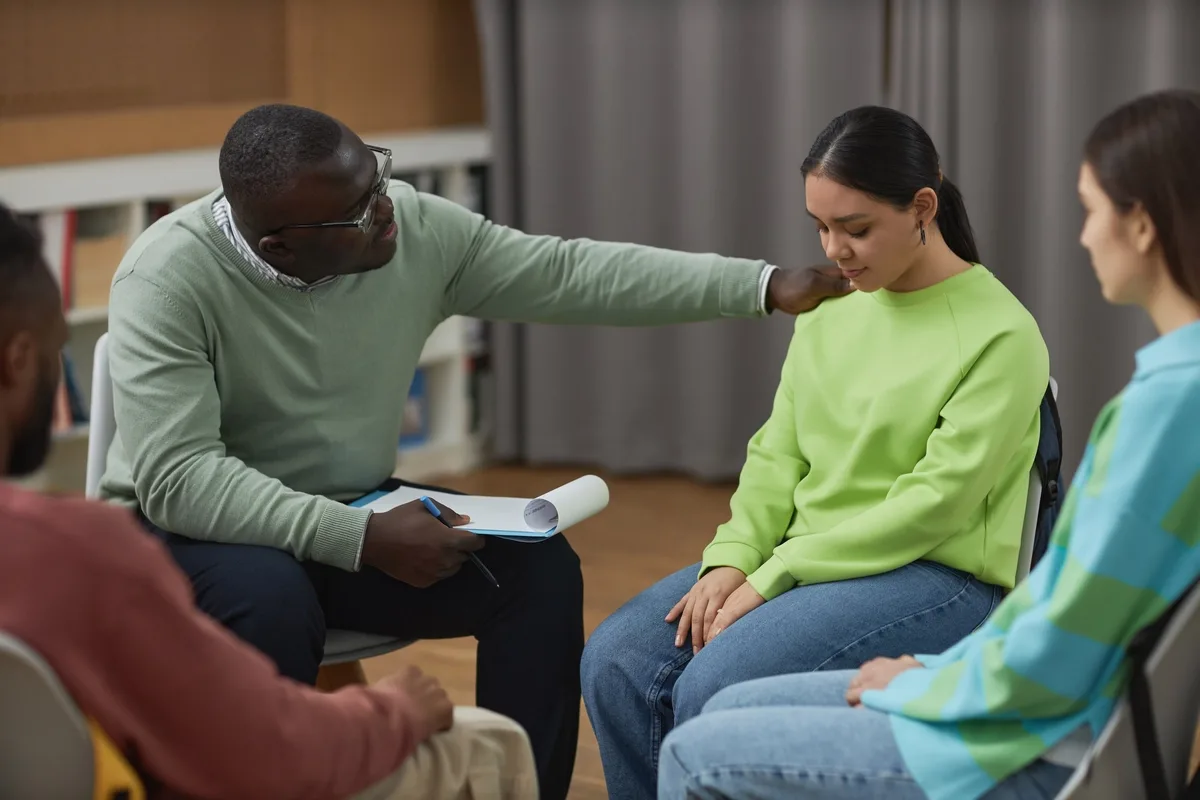24/7 Helpline:
(866) 899-221924/7 Helpline:
(866) 899-2219
Learn more about PTSD Rehab centers in Lawrence County

Other Insurance Options

Covered California

Ceridian

Health Partners

Premera

Group Health Incorporated

MHNNet Behavioral Health

Highmark

Optum

Medical Mutual of Ohio

UMR

Coventry Health Care

MVP Healthcare

Sutter

CareSource

Choice Care Network

EmblemHealth

State Farm

Access to Recovery (ATR) Voucher

Private insurance

BHS | Behavioral Health Systems

Hometown Behavioral Health Services of Arkansas
Hometown Behavioral Health Services of Arkansas is a private rehab located in Hoxie, Arkansas. Homet...

Mid South Health Systems
Mid South Health Systems is a drug and alcohol rehab in Walnut Ridge, Arkansas. They provide outpati...

The Last Resort
The Last Resort Recovery Center specializes in helping adult men overcome substance abuse addiction ...

Goochland Powhatan Community Services
Goochland Powhatan Community Services is a public rehab located in Powhatan, Virginia. Goochland Pow...

Cornerstone Community Counseling
Cornerstone Community Counseling, located in Imboden, Arkansas, offers behavioral health care servic...

Preferred Family Healthcare
Preferred Family Healthcare - Southwest Broad Street offers outpatient services for individuals with...

Ray of Hope Street Ministry
Ray of Hope Street Ministry is a private rehab located in Smithville, Tennessee. Ray of Hope Street ...














































































































































































